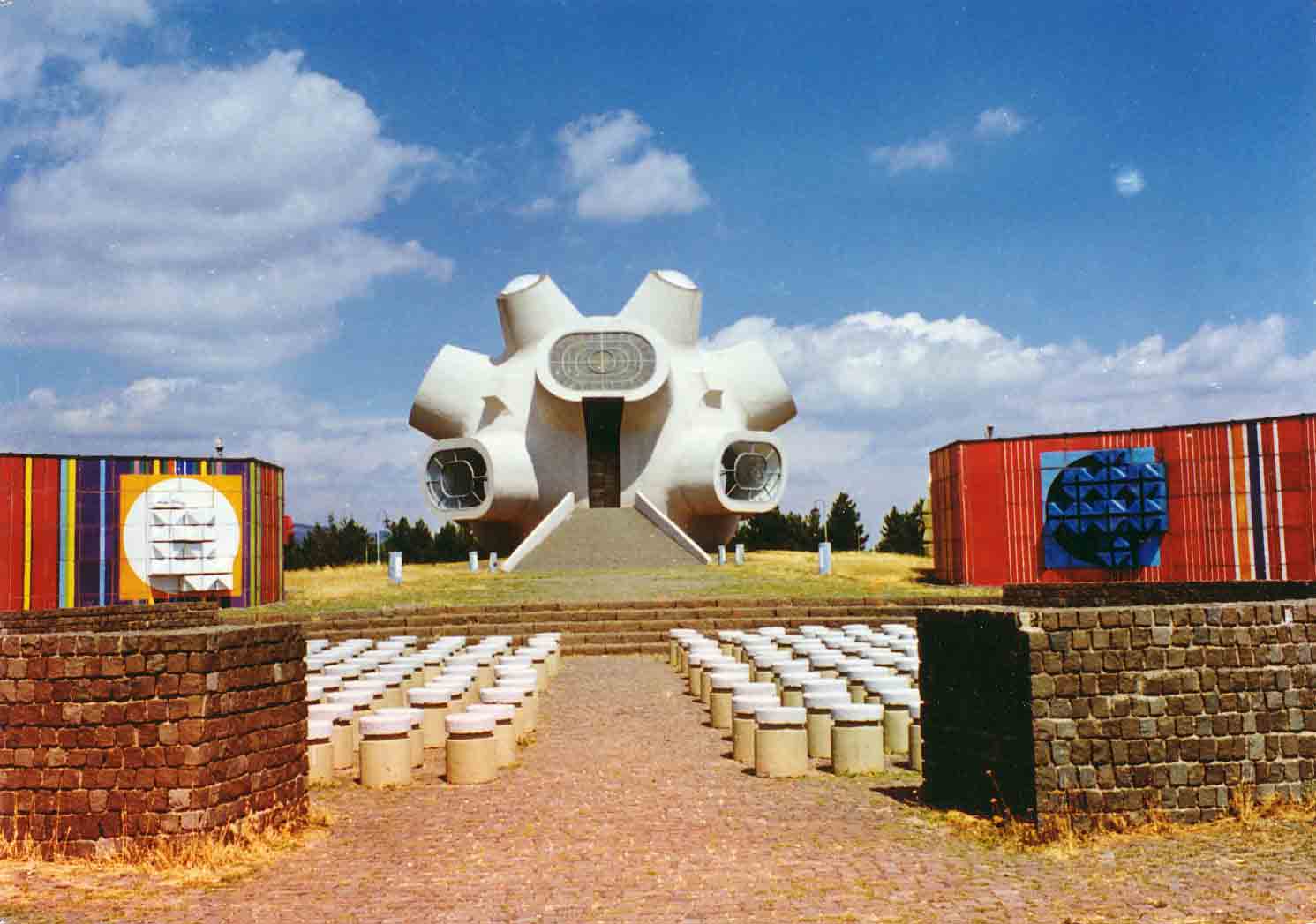Journey Through Time
CLEARING UP OF THE EMIGRATION TRUTH
Translated by Vesna Stevkovska
The international scientific gathering “Emigration from Macedonia Since its Beginnings Until Today” is the first meeting of this kind attended by about fifty participants from a number of countries.
The international scientific gathering “Emigration from Macedonia Since its Beginnings Until Today” organised by the Ministry of Emigration, now the Agency for Emigration, in collaboration with the Institute for National History, was held at the “Montana” hotel, in Krushevo during the period 3-5 August, 2000. It was held during the celebration of the 2000th Anniversary of Christianity, and was the first scientific gathering of this kind. The symposium was devoted to emigration from every part of Macedonia from its very beginnings. About fifty distinguished researchers and experts on this matter from Macedonia, Canada, USA, Australia, Croatia, Slovenia, Yugoslavia, Bulgaria, Albania, Poland, and other countries around the world, attended the gathering.
The aim of this important scientific symposium was to clear up a large number of issues through a scientific prism in order to touch upon the emigration phenomenon. Thus, a large number of scientists from the Republic of Macedonia and throughout the world presented results of their research on the historical and other reasons for emigration of the Macedonians to the Diaspora, and on the destiny of almost a million Macedonians dispersed all around the world.
Local and international media showed much interest for the international scientific gathering. Opened by the Director of the Agency for Emigration, Martin Trenevski MA, greeting the participants he also emphasized that the continuous emigration from Macedonia during a period of almost one-and-a-half century has created five-six generations of Macedonian descent. Each of these “citizens of the world” regardless of their life determination, represent a huge potential with which we must continue relations of collaboration. In addition to this, the relationship between Macedonian emigrants and the Republic of Macedonia should continue to grow and strengthen. In this sense we are happy that part of the Macedonian Diaspora is turned towards their fatherland. This was especially emphasized in their massive participation in the meetings of the businessmen, journalists, doctors, dentists and pharmacists, scientists, and youngsters of Macedonian descent. Martin Trenevski MA exclaimed this and wished the participants of the scientific gathering success in their work, and hope that similar meetings and socializing will be organised and held even more often in the future.
The first session of the scientific gathering in Krushevo devoted to emigration from Macedonia was opened by the President of the Organisational Committee, Tanas Vrazinovski Ph.D. His introductory paper was titled “The Situation and Perspectives of Researching Macedonian Emigration.” Other historians later presented reports on politics and emigration, ethnic identity, media, and other forms of organisation of Macedonian emigrants in their second homelands. Hence, participants in the first session were: Stavre Dzikov, Novica Veljanovski Ph.D., Stojan Kiselinovski Ph.D., Boro Mokrov Ph.D., Prof. Vera Stojcevska-Antik Ph.D., Lazar Lazarov Ph.D., Elizabeta Koneska, all from the Republic of Macedonia, and the scientists, Aleksandar Grebenarov from Sofia, and Dragan Subotic from Belgrade.

Presenters in the second session held in the afternoon of the first day were: Dagmar Dorovska Ph.D., Ivan Dorovski Ph.D. from Brno in the Czech Republic, Risto Kirjazovski Ph.D. and Marija Cenevska, Mile Mihajlov Ph.D. and Seadin Dzaferi from Macedonia, Dragoljub Petrovic Ph.D. from Belgrade, while the report of Michael Radin from Australia was presented by Ice Najdovski…
The third session of the meeting dealt mainly with the organisation of the Macedonians in the political, social, cultural, educational, and humanitarian field. Presenters were: Borislav Darjanovski Ph.D. from Varna, Goran Stojkovski from Zagreb, Gojko Ilievski from Pozarevac and Maja Miljkovic-Guric, and Branko Nadoveza from Belgrade. From Macedonia works were presented by Zoran Todorovski Ph.D., Mihajlo Georgievski Ph.D., Marjan Dimitrievski, Sefer Musliu, Risto Sanev, and the author of this text, while Tomislav Zojcevski’s report from Zagreb was only enclosed.
The fourth session, which was part of the third, included presentations on different topics by: Keti Dimitrievski from Buffalo, USA; Dragi Pop-Stefanija Ph.D. from Ljubljana; Ice Najdovski and Mitko Macevski from Sydney. Tatjana Kolacanin Ph.D.; Milan Boskovski, Aleksandar Trajanovski Ph.D.; Petar Solakovski and Hristo Andonovski, all from Macedonia also presented very interesting topics.
The scientific gathering “Emigration from Macedonia from its Beginnings Until Today” was a place for socializing and analyzing of issues from the life and activities of the national and church districts and associations of the Macedonian emigrants. Other issues from the life and work of the Macedonian emigrants were also presented. Thus, it was decided that all of the reports, as well as the discussions led during the symposium, be published as a special collection. This will enable the Macedonian and wider public, as well as the emigrants in the Diaspora to be informed about the results of a large number of specialised research in the field of emigration.
The scientific gathering on Macedonian emigration held in Krushevo justified all expectations. It proved that such symposiums need to be held more often and scientific viewpoints should be established on many essential issues from the activities and life in general of the Macedonians in the Diaspora. This especially applies to the topics which impose themselves on the Macedonians in Australia, USA, Canada, and the European countries where the number of emigrants is largest and where there are certain questions and problems which deserve special attention in researching.